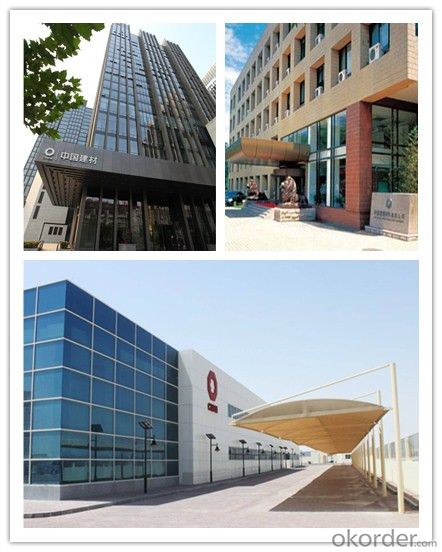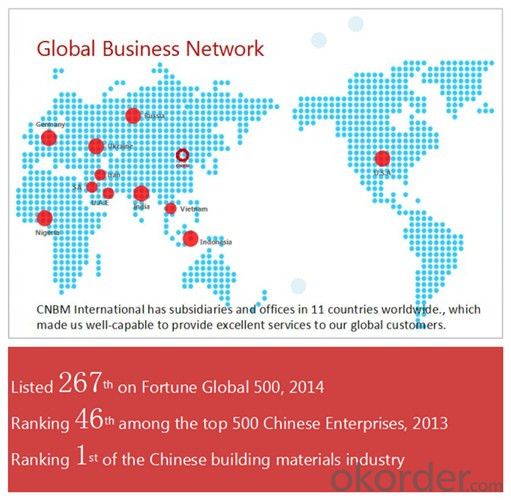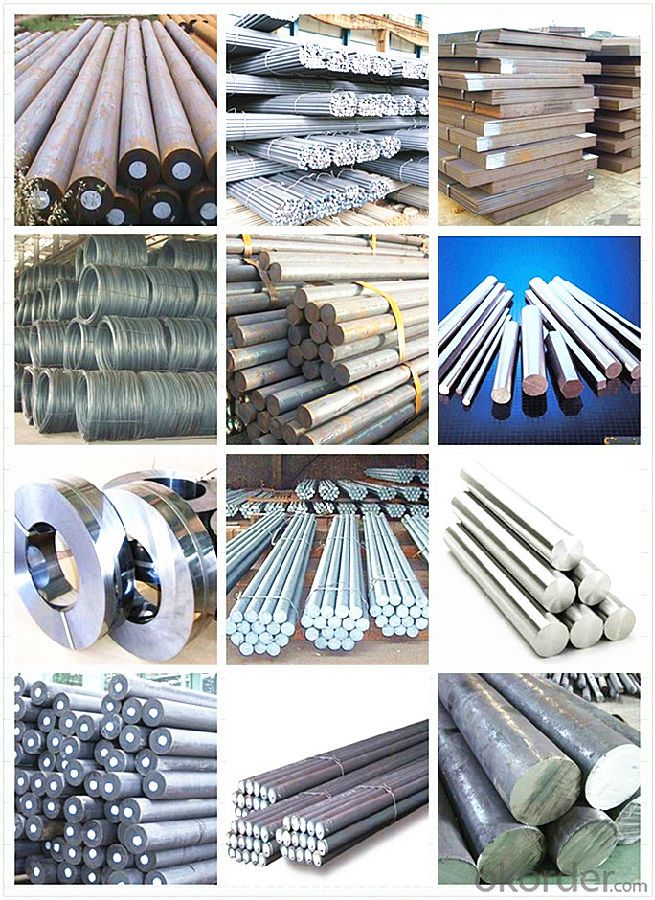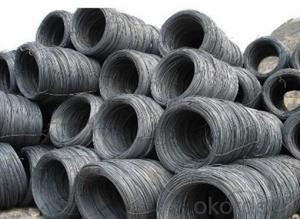High Quality Galvanized 8mm Steel Wire Rod
- Loading Port:
- Tianjin
- Payment Terms:
- TT OR LC
- Min Order Qty:
- 3 m.t.
- Supply Capability:
- 10000 m.t./month
OKorder Service Pledge
Quality Product, Order Online Tracking, Timely Delivery
OKorder Financial Service
Credit Rating, Credit Services, Credit Purchasing
You Might Also Like
Item specifice
Type:
Carbon Steel,Spring Steel,Bearing Steel,Gear Steel,Deformed Steel,Stainless Steel,Alloy Steel
Shape:
Steel Coil,Steel Sheet,Steel Wire Rod,Steel Flat Bar,Steel Square Bar,Steel Angle,Steel Round Bar,Steel Billets
Technique:
Hot Rolled,Cold Rolled,Cold Drawn,ERW,Forged,Saw,Extruded,EFW,Spring
Surface Treatment:
Galvanized,Coated,Copper Coated,Color Coated,Oiled,Dry,Chromed Passivation,Polished,Bright,Black,PVDF Coated
Certification:
ISO,SGS,BV,IBR,RoHS,CE,API,BSI,UL
Thickness:
5.0-30mm
Width:
5.0-30mm
Length:
In coils
Outer Diameter:
5.0-30mm
Net Weight:
2m.t.
Packaging:
Seaworthy Packaging
High Quality Galvanized 8mm Steel Wire Rod
Detailed Information of the High Quality Galvanized 8mm Steel Wire Rod
| Name | Hot Rolled High Carbon Wire Rod |
| Shape | Round Bar/Square Bar/Flat Bar/Plate/Wire |
| Standard | GB/ASTM/SAE/AISI/DIN/JIS/EN/BS |
| Surface Treatment: | Black/Peeling/Polished/Machined |
| Delivery Condition: | Hot Rolled or Forged/Peeled or Black Surface |
| Test | SGS/UT 100% Elements Testing |
| Certificate: | ISO/Mill Certificate |
| Service: | 24 hours online service / |
| more than 20 years trading and manufacture | |
| Quality Assurance: | the third party inspection, such as SGS, BV, TUV…etc. is acceptable |
| Packaging Details: | Seaworthy Packaging or as per customer's packing instruction |
Chemical Composition of the High Quality Galvanized 8mm Steel Wire Rod
| Grade | Chemical Composition(%) | |||||
| C | Mn | Si | S | P | B | |
| SAE1008 | 0.1max. | 0.3~0.50 | 0.15max | 0.050max | ≤0.040 | >0.0008 |
| Mechanical properties | ||||||
| Yield strength(N/mm2) | Tensile strength(N/mm2) | Elongation(%) | ||||
| 250-280 | 350-380 | ≥32 | ||||
Company Introduction the High Quality Galvanized 8mm Steel Wire Rod
CNBM International Corporation is the most import and export platform of CNBM group(China National Building Material Group Corporation) ,which is a state-owned enterprise, ranked in 270th of Fortune Global 500 in 2015.
With its advantages, CNBM International are mainly concentrate on Cement, Glass, Iron and Steel, Ceramics industries and devotes herself for supplying high quality series of refractories as well as technical consultancies and logistics solution.


| After-sale service | CNBM provides the services and support you need for every step of our cooperation. We’re the business partners you can trust; you can relax and get on with doing business. |
| For any problem, please kindly contact us at any your convenient time, we’ll reply you in our first priority within 24 hours | |
| Advantages | Industry experience over 20 years. |
| Shipment of goods -More than 70 countries worldwide. | |
| The most convenient transport and prompt delivery. | |
| Competitive price with best service. | |
| High technical production line with top quality products. | |
| High reputation based on best quality products. |
Packaging & Delivery the High Quality Galvanized 8mm Steel Wire Rod
| Packaging Detail | Sea worthy packing /as per customer's packing instruction |
| Delivery Detail | 15 ~ 40 days after receiving the deposit |
Products Show

FAQ:
| Are you a trader or manufacturer? | Manufacturer |
| What’s the MOQ? | 3 metric ton |
| What’s your delivery time? | 15-35 days after downpayment received |
| Do you Accept OEM service? | Yes |
| what’s your delivery terms? | FOB/CFR/CIF |
| What's the Payment Terms? | 30% as deposit,70% before shipment by T/T |
| Western Union acceptable for small amount. | |
| L/C acceptable for large amount. | |
| Scrow ,Paybal,Alipay are also ok | |
| Why choose us? | Chose happens because of quality, then price, We can give you both. |
| Additionally, we can also offer professional products inquiry, products knowledge train (for agents), smooth goods delivery, excellent customer solution proposals. | |
| What's your available port of Shipment? | Main Port, China |
| What’s your featured services? | Our service formula: good quality+ good price+ good service=customer's trust |
| Where are your Market? | Covering more than 160 countries in the world |
- Q:What are the different high-pressure grades of special steel?
- There are several different high-pressure grades of special steel, each with its own unique properties and applications. Some of the commonly used high-pressure grades of special steel include: 1. 4130 steel: This grade of steel is known for its excellent strength, toughness, and heat resistance. It is often used in the manufacturing of high-pressure tubing and components for the oil and gas industry. 2. 4340 steel: This grade of steel is known for its exceptional strength and toughness. It is commonly used in the production of high-pressure valves, gears, and other critical components in industries like aerospace, defense, and automotive. 3. 316 stainless steel: This grade of stainless steel is highly corrosion-resistant and has excellent high-temperature properties. It is frequently used in high-pressure applications such as pipelines, heat exchangers, and pressure vessels in chemical and petrochemical industries. 4. 17-4 PH stainless steel: This grade of stainless steel offers a combination of high strength, excellent corrosion resistance, and good toughness. It is often used in high-pressure pump components, turbine blades, and other critical parts in industries like power generation and aerospace. 5. F22 steel: This grade of steel is a low-alloy steel with high-temperature strength and excellent creep resistance. It is commonly used in high-pressure and high-temperature applications such as boilers, pressure vessels, and piping systems in power plants and refineries. These are just a few examples of the high-pressure grades of special steel available. The selection of the appropriate grade depends on the specific requirements of the application, including factors like pressure, temperature, corrosion resistance, and mechanical properties.
- Q:What are the different surface treatments used for special steel?
- There are several different surface treatments that can be used for special steel, depending on the specific requirements and desired properties. Some of the commonly used surface treatments for special steel include: 1. Nitriding: This process involves diffusing nitrogen into the surface of the steel, resulting in a hardened layer. Nitriding improves the surface hardness, wear resistance, and fatigue strength of the steel. 2. Carburizing: Carburizing involves introducing carbon into the surface of the steel, forming a hard and wear-resistant layer. This process enhances the surface hardness and improves the steel's resistance to wear and fatigue. 3. Coating: Coating is a popular surface treatment technique where a thin layer of protective material is applied to the steel surface. Coatings can include various materials like zinc, chrome, or ceramic, which provide corrosion resistance, improved aesthetics, and enhanced durability. 4. Shot peening: Shot peening is a mechanical surface treatment technique that involves bombarding the steel surface with small metallic or ceramic particles. This process induces compressive stresses in the material, enhancing its fatigue strength and resistance to cracking. 5. Electroplating: Electroplating is a process where a thin layer of metal is deposited onto the steel surface using an electrical current. This treatment provides improved corrosion resistance and can also enhance the appearance of the steel. 6. Passivation: Passivation involves treating the steel surface with a chemical solution to remove impurities and create a protective oxide layer. This process improves the corrosion resistance and enhances the surface finish of the steel. 7. Anodizing: Anodizing is a surface treatment commonly used for aluminum but can also be applied to special steel. It involves creating an oxide layer on the steel surface through an electrolytic process. Anodizing improves corrosion resistance, provides an aesthetic finish, and can also be used for coloring the steel. These different surface treatments offer various benefits and are chosen based on the specific application requirements, such as corrosion resistance, wear resistance, hardness, aesthetics, or improved mechanical properties.
- Q:What are the cost implications of using special steel?
- The cost implications of using special steel can vary depending on several factors. Special steel generally refers to alloyed or high-grade steel that offers enhanced properties such as improved strength, corrosion resistance, or heat resistance. One of the main cost implications is the higher initial cost of special steel compared to regular carbon steel. Special steel often requires more complex and expensive production processes, which can drive up the cost of raw materials. Additionally, the limited availability of certain alloying elements used in special steel can further increase its price. However, using special steel can also lead to cost savings in the long run. Its improved properties can result in reduced maintenance and replacement costs. For example, special steel that offers better corrosion resistance may require less frequent painting or coating, saving on maintenance expenses. Similarly, using high-strength special steel can allow for the use of lighter and thinner components, reducing material costs and transportation expenses. Furthermore, special steel's enhanced performance characteristics can lead to improved product quality and durability, which may result in higher customer satisfaction, increased sales, and potentially higher profits. In summary, while the initial cost of special steel is usually higher, its long-term benefits in terms of improved performance, reduced maintenance, and potential sales growth can offset these expenses, making it a cost-effective choice in many applications.
- Q:How does special steel contribute to the manufacturing of precision instruments?
- Special steel plays a crucial role in the manufacturing of precision instruments by providing exceptional strength, durability, and resistance to corrosion. Its unique properties allow for the production of intricate parts and components that require high precision and accuracy. Additionally, special steel offers excellent heat resistance and stability, ensuring consistent performance and reliability of precision instruments in various demanding environments and applications.
- Q:What are the future trends in special steel manufacturing?
- Advancements in technology, sustainability, and the development of new alloys are expected to shape the future of special steel manufacturing. Technology will play a significant role, with automation and robotics being integrated into the production process. This integration will lead to improved efficiency, precision, and reduced labor costs. Quality control will also be enhanced, allowing for the production of more complex and customized steel products. Sustainability will be a key focus in the industry, driven by the growing environmental consciousness. Companies will seek to reduce their carbon footprint by adopting cleaner production methods, such as utilizing renewable energy sources and implementing recycling programs to minimize waste. Additionally, there will be a shift towards developing greener alloys with reduced environmental impact. The development of new alloys will be crucial in meeting the evolving needs of various industries. Material science advancements will enable special steel manufacturers to create alloys with enhanced properties, including increased strength, durability, corrosion resistance, and heat resistance. These new alloys will cater to the increasing demand for high-performance materials in sectors like aerospace, automotive, energy, and construction. Furthermore, the future of special steel manufacturing will be influenced by the rising demand for lightweight materials. Industries striving for improved fuel efficiency and reduced emissions will require special steel alloys that offer high strength-to-weight ratios. This will drive research and development efforts towards creating lighter yet stronger steel products. In conclusion, the future of special steel manufacturing will be shaped by advancements in technology, sustainability, and the development of new alloys. These trends will drive increased automation, cleaner production methods, and the creation of innovative alloys to meet the changing needs of various sectors.
- Q:How does special steel perform in terms of high-temperature strength?
- Special steel is known for its exceptional high-temperature strength. It exhibits excellent resistance to deformation, creep, and thermal fatigue, allowing it to maintain its structural integrity and mechanical properties even under extreme heat conditions. This makes special steel a reliable choice for applications that require resistance to high temperatures, such as in aerospace, power generation, and industrial furnaces.
- Q:How is special steel machined?
- Special steel is machined using various techniques such as turning, milling, drilling, grinding, and cutting. These processes involve using specialized tools and equipment to shape and remove material from the steel, ensuring precise dimensions and smooth finishes. Additionally, advanced technologies like computer numerical control (CNC) machines are often used to automate the machining process, resulting in higher efficiency and accuracy.
- Q:What are the main factors affecting the machinability of special steel?
- The machinability of special steel, which refers to its ability to be easily cut, shaped, and formed, is influenced by several key factors. 1. Alloy Composition: The chemical composition of special steel plays a crucial role in its machinability. Elements such as carbon, chromium, nickel, and molybdenum can significantly affect the material's hardness, toughness, and cutting properties. Higher carbon content, for example, can increase the hardness of steel, making it more difficult to machine. 2. Hardness: The hardness of special steel is a critical factor in determining its machinability. Harder steels require more cutting force and generate more heat during machining, which can lead to increased tool wear and reduced efficiency. Softer steels, on the other hand, are generally easier to machine but may result in lower tool life. 3. Heat Treatment: The heat treatment process used on special steel can greatly impact its machinability. Heat treatments such as annealing, tempering, or quenching can alter the steel's microstructure and mechanical properties, affecting how it responds to cutting forces. Properly heat-treated steel can improve machinability by reducing hardness and increasing toughness. 4. Grain Size: The size and distribution of grains within the steel also affect its machinability. Fine-grained steel tends to have improved machinability compared to coarse-grained steel, as smaller grains offer more uniform cutting conditions and reduce the risk of tool damage. 5. Cutting Speed and Feed Rate: Machining parameters, including cutting speed and feed rate, directly impact the machinability of special steel. Higher cutting speeds can increase tool wear and generate excessive heat, affecting the surface finish and dimensional accuracy. Similarly, incorrect feed rates can cause chip formation problems, leading to poor machinability. 6. Cutting Tool Selection: The choice of cutting tool material and geometry is critical in achieving optimal machinability. Different tool materials, such as carbide or high-speed steel, have varying wear resistance and cutting properties. The tool geometry, including rake angle and clearance angle, also affects chip formation, cutting forces, and heat generation. 7. Lubrication and Cooling: Adequate lubrication and cooling during machining are vital to enhance machinability. Lubricants or coolants help reduce friction and heat, prolong tool life, and improve chip evacuation. They also prevent workpiece deformation and improve surface finish. Considering these factors, it is essential to carefully select the appropriate special steel grade, optimize machining parameters, and use suitable cutting tools and lubrication to achieve the desired machinability and maximize productivity.
- Q:What are the different testing methods used for special steel?
- Some of the different testing methods used for special steel include hardness testing, tensile testing, impact testing, metallographic examination, ultrasonic testing, and magnetic particle testing.
- Q:What are the different cutting techniques used for special steel?
- Some of the different cutting techniques used for special steel include plasma cutting, laser cutting, waterjet cutting, and abrasive cutting.
1. Manufacturer Overview |
|
|---|---|
| Location | |
| Year Established | |
| Annual Output Value | |
| Main Markets | |
| Company Certifications | |
2. Manufacturer Certificates |
|
|---|---|
| a) Certification Name | |
| Range | |
| Reference | |
| Validity Period | |
3. Manufacturer Capability |
|
|---|---|
| a)Trade Capacity | |
| Nearest Port | |
| Export Percentage | |
| No.of Employees in Trade Department | |
| Language Spoken: | |
| b)Factory Information | |
| Factory Size: | |
| No. of Production Lines | |
| Contract Manufacturing | |
| Product Price Range | |
Send your message to us
High Quality Galvanized 8mm Steel Wire Rod
- Loading Port:
- Tianjin
- Payment Terms:
- TT OR LC
- Min Order Qty:
- 3 m.t.
- Supply Capability:
- 10000 m.t./month
OKorder Service Pledge
Quality Product, Order Online Tracking, Timely Delivery
OKorder Financial Service
Credit Rating, Credit Services, Credit Purchasing
Similar products
New products
Hot products
Related keywords
































